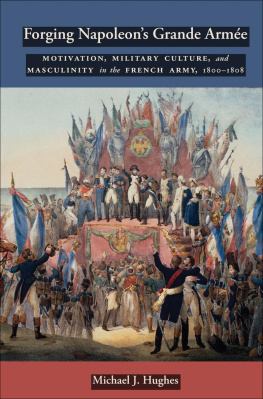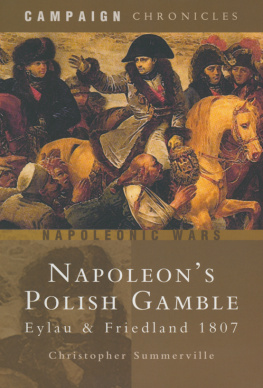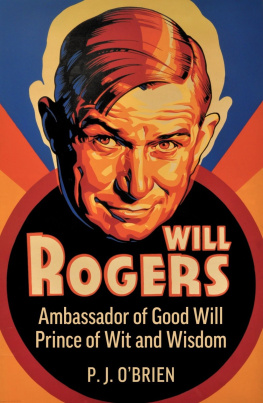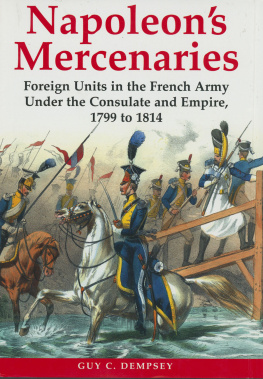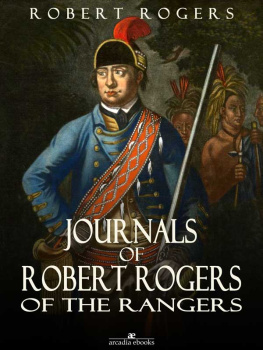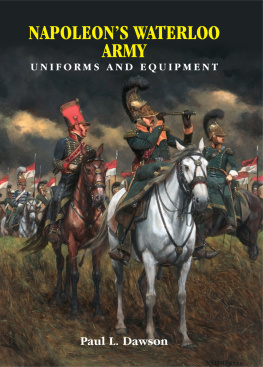First published in Great Britain in 1974
by Ian Allan
Published in 2005 in this format by
PEN & SWORD MILITARY
an imprint of
Pen & Sword Books Limited
47 Church Street
Barnsley
South Yorkshire
S70 2AS
Copyright H.C.B. Rogers 1974
ISBN 1 84415 310 X
The right of H.C.B. Rogers to be identified as
Author of this Work has been asserted
by him in accordance with the
Copyright, Designs and Patents Act 1988.
A CIP catalogue record for this book
is available from the British Library.
All rights reserved. No part of this book may be reproduced or
transmitted in any form or by any means, electronic or mechanical
including photocopying, recording or by any information storage
and retrieval system, without permission from the Publisher in writing.
Printed and bound in Great Britain by
CPI UK
Pen & Sword Books Ltd incorporates the imprints of
Pen & Sword Aviation, Pen & Sword Maritime, Pen & Sword Military,
Wharncliffe Local History, Pen & Sword Select,
Pen & Sword Military Classics and Leo Cooper.
For a complete list of Pen & Sword titles please contact:
PEN & SWORD BOOKS LIMITED
47 Church Street, Barnsley, South Yorkshire, S70 2AS, England.
E-mail: enquiries@pen-and-sword.co.uk
Website: www.pen-and-sword.co.uk
Troops are made to let themselves be killed, Napoleon once observed philosophically. And killed they were: between 1792 and 1814 France lost some 1,500,000 of her sons, drowned in a river of blood, for the sake of Revolution and Empire. But what of these soldiers? How were they trained, equipped, organised? As author Colonel Rogers points out:Many books have been written about Napoleon and his campaigns, and the great battles fought by his armies have been described time and time again. Much less has been written about the soldiers of those armies and of the organisation and conditions under which they lived and served. The present volume, then, seeks to plug this gap in our knowledge.
Bonaparte began reforming the French Army in 1802. After years of neglect, the military had fallen into something of a decline, but the energetic first consul set to work to create a new national force: bad officers were weeded out, good ones promoted; intensive training was introduced; shortages in horses and guns addressed; and the basic structure of command and control reorganised and revitalised. Encamped at Boulogne, and ostensibly preparing for the invasion of Great Britain, the French Army was gradually honed into a first class military machine. In the words of Dumas, the camp at Boulogne was The best and most complete war school that could have ever been conceived.
Proclaimed emperor in May 1804, Napoleon required a Grand Army and the work of reform and reorganisation continued apace. This included the appointment of eighteen marshals to oversee the Army, under Napoleons direct authority. This was followed by a personal inspection of the camp at Boulogne, a scene described Bourrienne, the emperors biographer:
When he reviewed the troops, he asked the officers and often the soldiers in what battles they had been engaged, and to those who had received serious wounds he gave the cross [the prestigious Legion of Honour]. Here, I think, I may appropriately mention a singular piece of charlatanism to which the emperor had recourse, and which powerfully contributed to augment the enthusiasm of his troops. He would say to one of his aides-de-camp, Ascertain from the colonel of such a regiment whether he has in his corps a man who has served in the campaigns of Italy or of Egypt. Ascertain his name, where he was born, the particulars of his family, and what he has done. Learn his number in the ranks, and to what company he belongs, and furnish me with the information. On the day of the review, Bonaparte, at a single glance, could perceive the man who had been described to him. He would go up to him as if he recognized him, address him by his name, and say,Oh! So you are here! You are a brave fellow - I saw you at Aboukir - how is your old father? What! Have you not got the cross? Stay, I will give it to you. Then the delighted soldiers would say to each other, You see the emperor knows us all; he knows our families; he knows where we have served. What a stimulus was this to soldiers, whom he succeeded in persuading that they would all, some time or another, become marshals of the empire!
On 5 December 1804, three days after his coronation, Napoleon held a grand festival on the Champs de Mars, and distributed regimental standards-the celebrated imperial eagles-to the regiments that formed the Paris garrison. According to Furse, in Campaigns of 1805, Napoleon addressed his troops thus: Soldiers, behold your flags; these eagles will serve you always as rallying points; they will be wherever your Emperor may judge it necessary for the defence of his throne and of his people. Swear to sacrifice your life to defend them, and to keep them always by your courage on the path of victory. Do you swear it? Thousands of voices replied with enthusiasm, We do swear it. The army kept its oath, for in less than twelve months the same eagles, after a series of sanguinary combats, were waving on the walls of Vienna and floating in the breeze on the plateau of Pratzen.
Central to Napoleons reforms was the subdivision of the Army into corps: big, self-contained units of all arms, which were in effect, separate miniature armies. Each corps was placed under the command of a senior general or marshal, while Napoleon retained the command in chief. The main benefits of this system were speed and flexibility: with several self-reliant forces, capable of fending off large enemy units until reinforced, Napoleon could march rapidly over available roads (40 km per day, according to Georges Blond) without having to concentrate his army into one dense, slow-moving mass. And by keeping his corps within a days march of each other, Napoleon could rapidly change from dispersion to concentration, as circumstances demanded. The corps system was a major ingredient in the emperors military success and it was rapidly copied by his enemies.
In Napoleons Army, Colonel Rogers examines the corps system in detail, along with a fascinating array of facts and figures covering all aspects of the Grand Armys organisation and effectiveness in the field. The battles and campaigns are briefly and clearly outlined, to give essential background, but the book is primarily an in-depth study of the hard-marching, hard-fighting Napoleonic war machine, from its birth at Boulogne, through its years of triumph, to disaster at Waterloo. Along the way, the author answers how, as Lord Wavell put it, Napoleon inspired a ragged, mutinous, half-starved army and made it fight as it did.
Fondly regarded by leading Napoleonic scholars and aficionados as the book which turned them on to this fascinating period, Rogers authoritative study is now available in a paperback edition accessible to all. The author was a distinguished military historian and an expert on the campaigns and armies of the Napoleonic Wars. His best-known books are The British Army in the Eighteenth Century, The Confederates and the Federals at War, Wellingtons Army, Artillery Through the Ages, Weapons of the British Soldier and Tanks in Battle.
Christopher Summerville, York 2004





